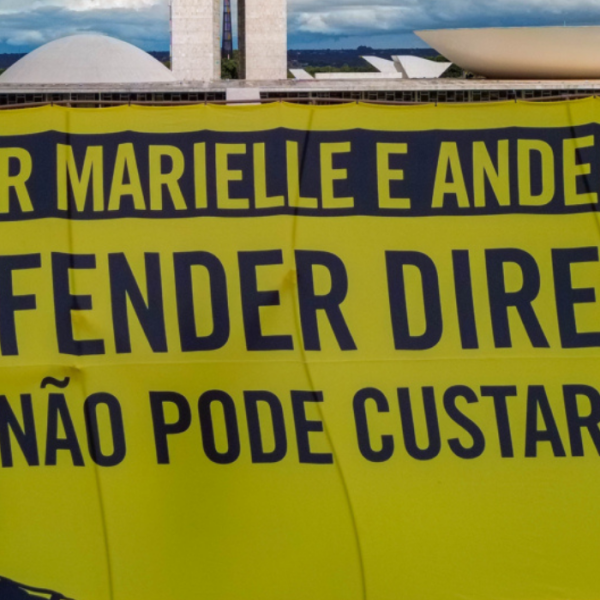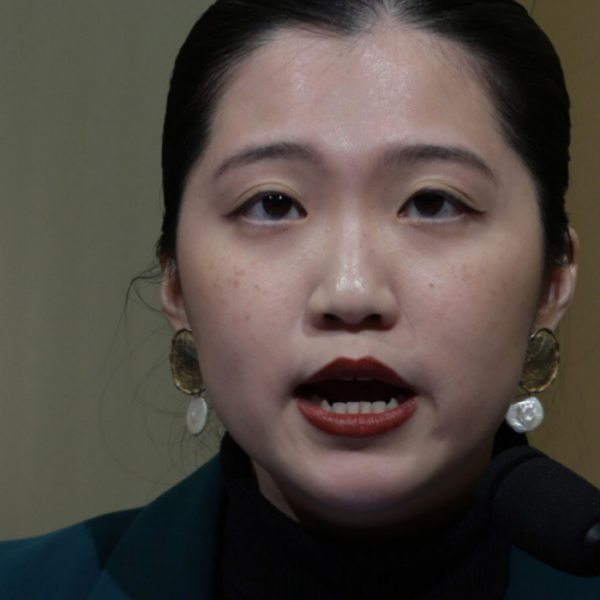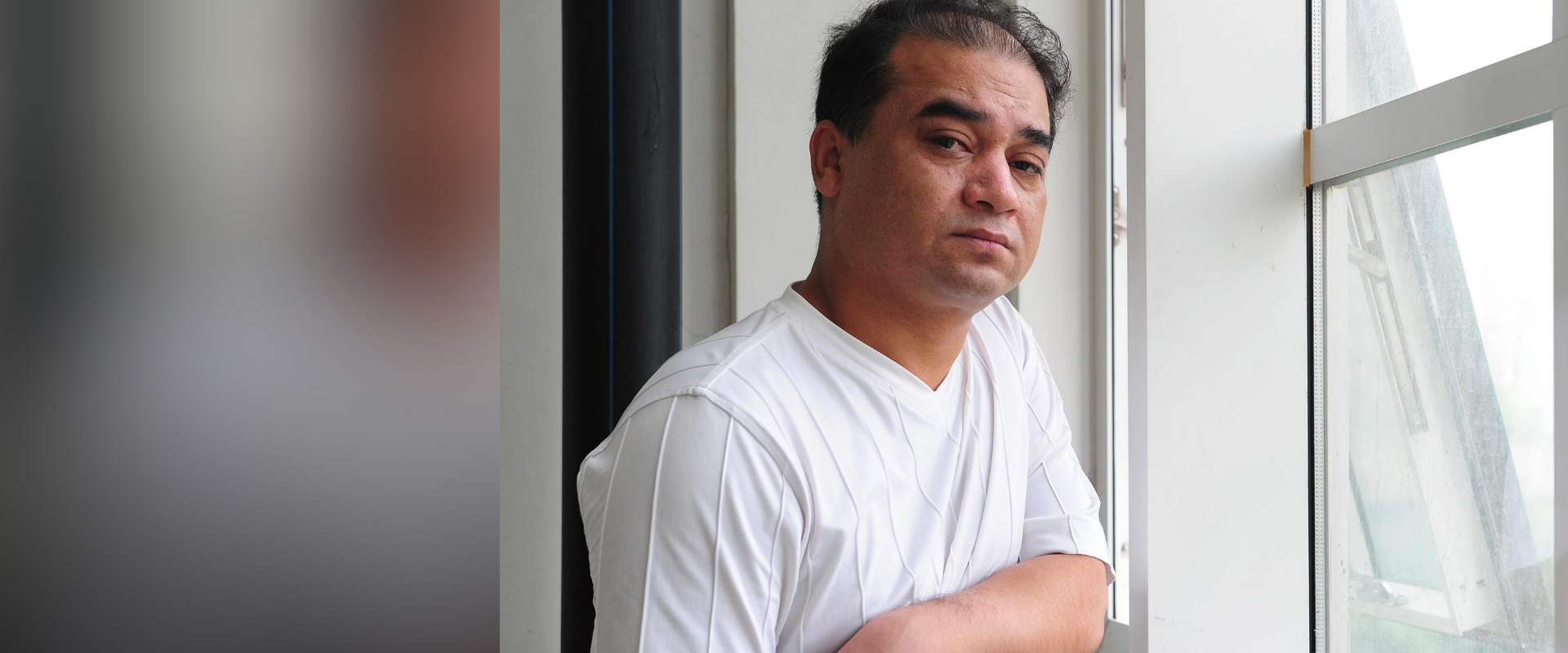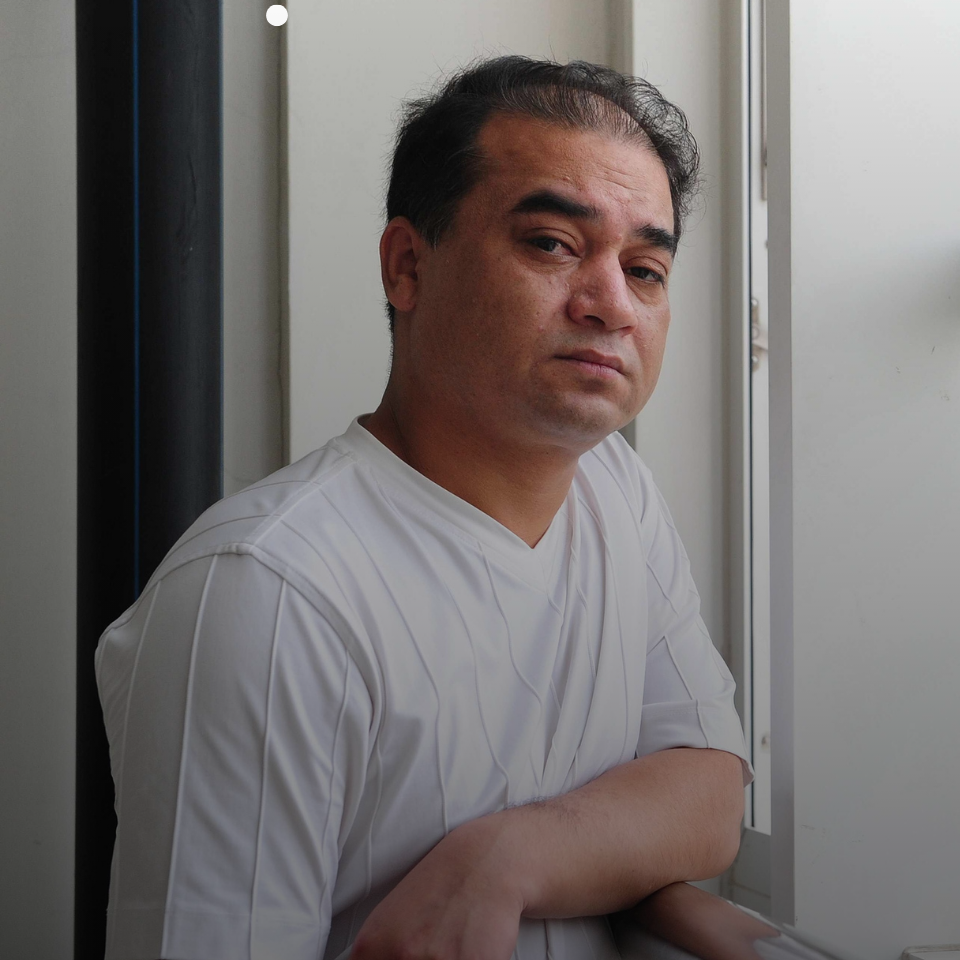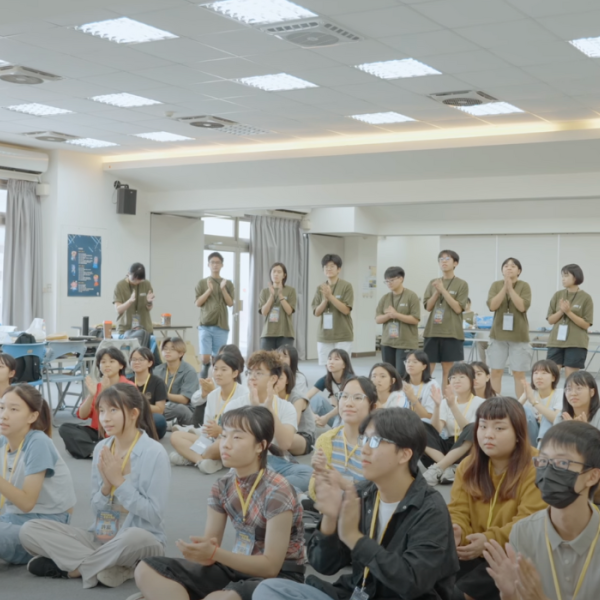【香港】公開信:敦促放棄在香港引入國家安全立法
2020/06/17
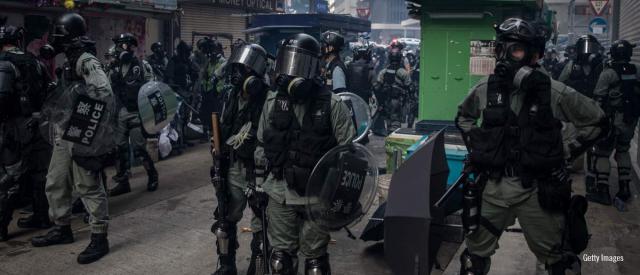
致中華人民共和國全國人民代表大會的公開信
敦促放棄在香港引入國家安全立法
栗委員長︰
我們對中華人民共和國全國人民代表大會(下稱︰全國人大)最近通過《建立健全香港特別行政區維護國家安全的法律制度和執行機制的決定》(下稱︰《決定》),計劃直接為香港訂立國家安全立法(下稱︰《法例》)表達嚴重關切。我們敦促全國人民代表大會常務委員會(下稱︰人大常委會)摒棄該項立法。
儘管《法例》的詳細條文尚未公佈,但該《決定》以及京港兩地官員最近的評論均意味《法例》將威脅香港人的基本權利和自由。我們尤其關注它對香港公民社會的影響。
根據《決定》,預計《法例》將禁止「分裂」、「顛覆」、「恐怖主義」和「外國和境外勢力干預香港事務」的活動。然而上述「罪行」的定義含糊不清,當中可以包括對政府的任何批評,並可用以打壓人民和平行使和捍衛人權的權利。人大常委會成員譚耀宗曾經建議,反對國家安全立法人士應被取消香港立法會的議員資格。香港基本法委員會副主任梁愛詩則表示不排除《法例》具追溯力。這些對權利的限制,違反了對香港具有約束力的《公民權利和政治權利國際公約》中的規定。
在中國法律裏,「國家安全」這個概念具有極為廣泛而模糊的覆蓋面,導致不少和平行動者、人權律師、學者、少數民族、新聞工作者和網民,因諸如「顛覆」、「煽動顛覆」、「分裂國家」和「洩露國家機密」等模糊不清的罪行而被拘留、檢控和監禁多年、以至終身。此外,「外國和境外勢力干預」是《法例》中另一含糊的概念,與香港以外地區有交往的任何團體或個人都可能因此而身陷囹圄。事實上,中央政府和香港政府及官員已宣稱非政府組織和行動者的和平活動(包括參加示威、接受捐贈和批評政府)受「境外勢力」領導,構成「外國和境外勢力干預香港事務」。
《約翰內斯堡原則》和《錫拉庫扎原則》等國際人權標準規定,除非國家的存在或領土完整受到實際的武力攻擊或武力的威嚇,否則不得援引「國家安全」作為限制權利和自由的理據。如果只受到局部或相對孤立的違法亂紀的威脅,一個國家不能以國家安全為由限制權利。一個國家亦不得以國家安全為由採取違反人權的措施打壓異見者,或對人民施加鎮壓手段。任何國家若要訂立國家安全法,必須符合易於周知、明確、狹義、精確的準則,以及讓個人能夠精準地預視某一特定行為是否違法。針對濫用的問題,國家還必須提供充分的保障和有效的補救措施。擬議中的《法例》並無明確要求必須遵守國際人權法的準則,令含糊不清的條款容易被當局濫用,藉以廣泛打壓各種權利和自由。
全國人大決定中就香港而提出的國家安全立法,似乎已涵蓋《基本法》第二十三條所涵蓋的事項。聯合國人權事務委員會在2013年的《結論性意見》中建議香港政府須確保《基本法》第二十三條下的任何新立法「完全符合」《公民權利和政治權利國際公約》的規定。
2020年4月23日,六名聯合國特別報告員就香港政府對恐怖主義行為的定義過於廣泛和不精確表示擔憂,認為可能導致履行國際公約意圖以外的侵犯人權行為。特別報告員警告不要將抗議活動和集會行為籠統地歸類為「恐怖主義」或「國家安全威脅」,並批評當前的香港法律標準偏離了有關恐怖主義的國際條約和聯合國安全理事會關於恐怖主義行為對國際和平與安全的威脅的第1566號決議。
全國人大直接將國家安全立法納入《基本法》附件三的決定引起了公眾對香港人權保障的嚴重關注。「一國兩制」的憲政安排意味著中國的國家法律一般不適用於香港特別行政區。 《基本法》以第十八條附件三的形式,容許某些國家法律在香港實施,但這些法律必須經過立法或頒布程序。《法例》草案不經立法程序而在香港頒布,將繞過立法會的監察和有意義的公眾諮詢程序。
《基本法》第十八條訂明,將中國國家法律納入附件三應僅「限於有關國防、外交和其他…不屬於香港特別行政區自治範圍的法律」 。《基本法》和香港主權移交前中英所簽訂的雙邊協議,均訂明香港擁有「高度自治」;除國防和外交事務外,香港政府擁有管理香港事務的自治權。 《基本法》第二十三條亦授權香港政府「自行立法」禁止顛覆等行為。
全國人大的決定還規定,《法例》將容許中央政府根據需要在港設立「相關」機構,以在港維護「國家安全」。雖然已公開的資訊非常有限,但這將意味著容許在港成立諸如國家安全部和公安部國內安全保衛局之類的機構。而這些機構長期以來,在中國因嚴重侵犯人權而聞名,當中包括任意拘留和折磨行動者和非政府組織的成員。公安部亦表示將會向香港警方提供有關國家安全事務的「支援」,卻沒有提供「支援」的細節。
這項安排引起公眾對其違反《基本法》第二十二條的憂慮。根據《基本法》第二十二條第一款規定,中央人民政府各部門「不得干預香港特別行政區根據[基]本法自行管理的事務」。目前,中國大陸對國家安全機構的權力根本沒有任何制衡,同時也沒有有效的機制制約它們有系統性地侵害人權的行為。容許這些機構在香港運作或由香港政府設立類似機構,不僅對人權捍衛者、獨立傳媒和持不同政見者構成威脅,實際上更威脅著城中的所有人。
全國人大的決定還規定:「香港特別行政區行政機關、立法機關、司法機關應當依據有關法律規定有效防範、制止和懲治危害國家安全的行為。」香港司法機關在審理「敏感」案件中所承受的壓力已越來越大,這種指令可以損害司法機關的獨立性,破壞香港法治的基石。
儘管香港法院一直以來均被公認為獨立和專業,但香港律政司司長鄭若驊日前表示,日後將可能設立「特別法庭」處理國家安全案件,以「協助司法機構處理未曾涉足的領域」。我們擔心此舉將意味著與國家安全法有關的嫌疑人可能不再享有與香港司法系統中其他人一樣的公平審判權。在大陸,涉嫌觸犯國家安全罪行的嫌疑人,通常會被剝奪程序權利,當中包括他們自己選擇和委託律師和公開審訊的權利。鄭若驊續稱,國家安全案件審訊「一般」對公眾開放,但法官「有時」可拒絕公開審理。行政會議成員葉劉淑儀進一步提出,由陪審團審理國家安全案件並「不恰當」。
我們敦促全國人大常委會放棄在香港引入國家安全立法的計劃,因根據迄今為止所掌握到有關《法例》的資訊,以及過往在中國實行國家安全法的經驗均清楚顯示,不論《法例》條文本身及其應用,均不符合國際人權法律和標準。
2020年6月16日
2047香港監察
國際特赦組織
Article 19 (只有英文)
亞洲專訊資料研究中心
澳港聯
藩籬以外-認識及關愛雙性人
無國界社運
布里斯布香港留學生集氣
加拿大香港之友
坎培拉香港關注組
丹麥中國批評協會
中國勞工通訊
維權網
中國維權律師關注組
基督徒社工
基督徒關懷香港學會
公民力量
民間電台
民間人權陣線
民權觀察
公民社會發展資源中心
人權公約施行監督聯盟
香港平權計劃
正言匯社
論壇勞工世界
自由之家
良心之友
通訊業總工會
基層文化中心
伯克萊分校香港事務組織
香港市民支援愛國民主運動聯合會
香港基督徒社關團契
香港基督徒學會
挪威香港文化協會
香港職工會聯盟
洛杉磯香港論壇
香港人權監察
香港聖公會福利協會職工會
香港融樂會有限公司
中國人權
西藏台灣人權連線
人權觀察
人道中國
國際律師協會人權研究所
International Human Rights Council - Hong Kong (只有英文)
國際人權服務社
香港天主教正義和平委員會
葵涌基層基督徒團體
勞工教育及服務網絡
麥瑪斯達大學香港民主與人權關注組
Netherlands for Hong Kong (只有英文)
華人民主書院
New Yorkers Supporting Hong Kong (只有英文)
北加州香港會
基督眾樂教會
香港開放數據
Planet Ally (只有英文)
民主動力
法政匯思
性神學社
彩虹行動
社工復興運動
無國界記者組織
零售、商業及成衣業總工會
居留權大學
學術自由學者聯盟
麥理浩夫人中心同工社會運動關注組
沈默之聲
善導會職員工會籌委會
社團法人台灣廢除死刑推動聯盟
台灣人權促進會
臺灣東突厥斯坦協會
香港教育大學教學人員協會
新婦女協進會
香港尋求庇護者及難民協會
挪台之友協會
The Norwegian Tibet Committee (只有英文)
瑞慈人權合作中心
多倫多香港人行動組
東華三院員工社會運動關注組
国際キャリア支援協会
維吾爾人權項目
溫哥華支援民主運動聯合會
勞動力
世界維吾爾代表大會
浸信會愛羣社會服務處同工社會行動關注組
副本抄送︰全國人大常委法制工作委員會香港特別行政區基本法委員會
June 16, 2020
Re: Reject National Security Legislation
Dear Chairman Li,
We are writing to express our grave concerns regarding the recent adoption by China’s National People’s Congress (NPC) of a formal decision to directly impose national security legislation on Hong Kong. We urge the Standing Committee of the National People's Congress (NPCSC) to reject the legislation.
Although no details of the law’s contents have been made publicly available, the decision – along with recent comments by Chinese and Hong Kong officials – suggest that it will threaten the basic rights and freedoms of the people in Hong Kong. We are particularly concerned about the law’s impact on Hong Kong, especially its vibrant civil society.
According to the NPC decision, the law is expected to prohibit acts of “splittism, subversion, terrorism,” and activities of “foreign and overseas intervention in Hong Kong affairs,” vague terms that can encompass any criticism of the government and be used against people peacefully exercising and defending their human rights. Standing Committee member Tam Yiu-chung has already suggested that those who oppose the national security legislation be disqualified from Hong Kong’s Legislative Council. The deputy director of the Standing Committee’s Hong Kong Basic Law Committee, Elsie Leung, “has not ruled out” that the law may even be retroactive. These restrictions contravene the International Covenant on Civil and Political Rights (ICCPR), which is binding on Hong Kong.
People’s Republic of China law conceptualizes “national security” in such a broad manner that peaceful activists, human rights lawyers, scholars, ethnic minorities, journalists, and netizens, are detained, charged, and imprisoned for years – sometimes for life – for vaguely defined crimes such as “subversion,” “inciting subversion,” “splittism,” and “leaking state secrets.” The law’s expected prohibition on “foreign intervention” is another vague term that could apply to any group or individual perceived to be interacting with those outside Hong Kong. In fact, the central and Hong Kong governments and officials have already alleged that nongovernmental organizations and activists are steered by “foreign forces,” and that their peaceful activities – including attending protests, receiving donations, and criticizing the government – constitute “foreign intervention.”
International human rights standards such as those found in the Johannesburg and Siracusa Principles set out that “national security” cannot be invoked to justify restrictions on rights and freedoms unless to protect a state’s existence or territorial integrity against the use or threat of force. A state cannot use national security as a reason to impose limitations on rights to prevent merely local or relatively isolated threats to law and order. A state must not invoke national security as a justification for measures aimed at suppressing opposition to human rights violations or at perpetrating repressive practices against its population. Any national security law must be accessible, unambiguous, and formulated narrowly and with precision, so as to enable individuals to foresee whether a particular act is unlawful. A state must also provide adequate safeguards and effective remedies against abuse. Without the requirement to comply with international human rights law, these vague terms leave the proposed law open to abuse by authorities to crack down on a wide range of rights and freedoms.
The national security law as proposed in the NPC decision appears to contain matters covered by Article 23 of the Basic Law. According to its Concluding Observations in 2013, the United Nations Human Rights Committee recommended that the Hong Kong government ensure any new legislation under Article 23 of the Basic Law was “fully consistent” with the provisions of the ICCPR.
On April 23, 2020, six United Nations Special Rapporteurs expressed concerns to the Hong Kong government about its overly broad and imprecise definitions of acts of terrorism, which may result in unintended human rights abuses. The Special Rapporteurs cautioned against the loose characterization of protests and collective acts of assembly as “terrorism” or “national security threats,” criticizing the current domestic legal standard as steering away from the core emphasis found in agreed international treaties on terrorism and UN Security Council Resolution 1566 on the targeting of civilians.
The NPC’s decision to directly insert the national security legislation into Annex III of the Basic Law raises serious concerns about human rights protections. Hong Kong’s “one country, two systems” constitutional arrangement means that China’s national laws normally do not apply to the Hong Kong Special Administrative Region. While article 18 of the Basic Law allows for the application of certain national laws via Annex III, the laws must undergo either legislation or promulgation. The draft law will be introduced to Hong Kong through promulgation and without a legislative process, bypassing popular oversight through the Legislative Council and meaningful public consultation.
The NPC decision also raises concerns because Article 18 of the Basic Law states that such insertion of Chinese national legislation into Annex III “shall be confined to those relating to defense and foreign affairs as well as other matters outside the limits of the autonomy of the Region.” Under the Basic Law and the bilateral treaty between the United Kingdom and China at the time of Hong Kong’s transfer of sovereignty, Hong Kong has a “high level of autonomy.” The Hong Kong government has autonomous powers to manage the city’s affairs, except for defense and foreign affairs. Article 23 of the Basic Law empowers the Hong Kong government to “enact laws on its own” to prohibit subversive acts.
The NPC decision also states that the law will allow the central government to set up “relevant” institutions to protect “national security” in Hong Kong as needed. Although there are few details, this could mean the establishment of agencies such as the Ministry of State Security and the National Security Bureau of the Ministry of Public Security – agencies long known for serious rights violations in China, including arbitrary detention and torture of activists and members of nongovernmental organizations – to operate in Hong Kong. The Ministry of Public Security has said it would provide “support” to Hong Kong police on national security matters, without giving specifics.
This arrangement raises questions as to its compliance with Article 22(1) of the Basic Law, which provides that no department of the Central People’s Government may interfere in the affairs which the Hong Kong Special Administrative Region administers on its own in accordance with the Basic Law. Currently, on the mainland there are essentially no institutional checks and balances on the power of national security agencies and no effective mechanisms to hold them accountable for their systemic violation of human rights. Allowing these agencies to operate in Hong Kong or having similar agencies set up by the Hong Kong government poses an imminent threat to not only human rights defenders, the independent media, and dissidents, but essentially every person in the city.
The NPC decision also provides that “the HKSAR’s administrative, legislative and judicial organs must, in accordance with relevant laws and regulation, effectively prevent, stop and punish acts endangering national security.” The city’s judiciary has already experienced intensifying pressure in “sensitive” cases. This direction may effectively undermine the independence of the judiciary, which is the cornerstone of the rule of law in Hong Kong.
While Hong Kong courts have long been regarded as independent and professional, the Hong Kong Secretary of Justice Teresa Cheng has said a separate “special court” may be established to handle these national security cases to “help the judiciary navigate uncharted territory.” We are concerned that this suggests that the suspects may not enjoy the same fair trial rights as others in Hong Kong’s judicial system. In the mainland, suspects in national security trials are regularly deprived of procedural rights, including access to legal counsel of their choice and the right to a public hearing. While Cheng said national security hearings should “generally” be open to the public, she also said judges may “at times” deny suspects an open hearing. Executive Council member Regina Ip Lau Suk-yee further suggested that it would not be “appropriate” to have juries for these trials.
We urge the NPCSC to abandon plans to introduce national security legislation for Hong Kong, as what is known about the draft law so far and the experiences with respective national security laws in mainland China strongly indicate that neither the law nor its application would conform to international human rights law and standards.
We look forward to your reply and would appreciate receiving your response on this matter.
Sincerely,
2047 HK Monitor
Amnesty International
Article 19
Asia Monitor Resource Centre
Australia Hong Kong Link
Beyond the Boundary-Knowing and Concerns Intersex
Borderless Movement
Brisbane International Student Solidarity with Hong Kong
Canadian Friends of Hong Kong
Canberra Hong Kong Concern Group
China Criticism Society of Denmark
China Labour Bulletin
Chinese Human Rights Defenders
Chinese Human Rights Lawyers Concern Group
Christian Social Workers
Christians for Hong Kong Society
Citizen Power Initiatives for China
Citizens’ Radio
Civil Human Rights Front
Civil Rights Observer
Civil Society Development Resources Center
Covenants Watch
Equality Project
Forthright Caucus
Forum Worlds of Labour / Forum Arbeitswelten e.V.
Freedom House
Friends of Conscience
General communication worker union
Grassroot Cultural Centre
Hong Kong Affairs Association of Berkeley
Hong Kong Alliance in Support of Patriotic Democratic Movements of China
Hong Kong Christian Fellowship of Social Concern
Hong Kong Christian Institute
Hong Kong Committee in Norway
Hong Kong Confederation of Trade Unions
Hong Kong Forum, Los Angeles
Hong Kong Human Rights Monitor
Hong Kong Sheng Kung Hui Welfare Council Workers Trade Union
Hong Kong Unison Limited
Human Rights in China
Human Rights Network for Tibet and Taiwan
Human Rights Watch
Humanitarian China
International Bar Association’s Human Rights Institute
International Human Rights Council – Hong Kong
International Service for Human Rights
Justice and Peace Commission of the HK Catholic Diocese
Kwai Chung Estate Christian Basic Community
Labour Education and Service Network
McMaster Stands With HK
Netherlands for Hong Kong
New School for Democracy
New Yorkers Supporting Hong Kong
Northern California Hong Kong Club
One Body in Christ
Open Data Hong Kong
Planet Ally
Power for Democracy
Progressive Lawyers Group
Queer Theology Academy
Rainbow Action
Reclaiming Social Work Movement
Reporters Without Borders
Retail, Commerce and Clothing Industries General Union
Right of Abode University
Scholars’ Alliance for Academic Freedom
Sheng Kung Hui Lady MacLehose Centre Staff Social Movement Concern Group
Sounds of the Silenced (SOS)
SRACP Staffs Union
Taiwan Alliance to End the Death Penalty
Taiwan Association for Human Rights
Taiwan East Turkestan Association
The Academic Staff Association of The Education University of Hong Kong
The Association for the Advancement of Feminism
The Hong Kong Society for Asylum-seekers and refugees
The Norwegian Taiwanese Friendship Association
The Norwegian Tibet Committee
The Rights Practice
Torontonian HongKongers Action Group
TWGHs Staff Social Movement Concern Group
United Nations ECOSOC NGO International Career Support Association
Uyghur Human Rights Project
Vancouver Society in Support of Democratic Movement
Worker Empowerment
World Uyghur Congress
浸信會愛羣社會服務處同工社會行動關注組 (Chinese list)
CC:Chairman of the NPCSC Legislative Affairs Commission(全国人大常委法制工作委員會)Members of the HKSAR Basic Law Committee(香港特別行政區基本法委員會)
更多影音
人權影音
- 全球
酷刑工具是如何被警方用來針對示威者?
人權影音
- 全球
阿姆內斯提青春大舞台 2024高中生人權營
人權影音
失去眼睛的警察暴力倖存者萊迪述說她的遭遇
人權影音
- 全球
